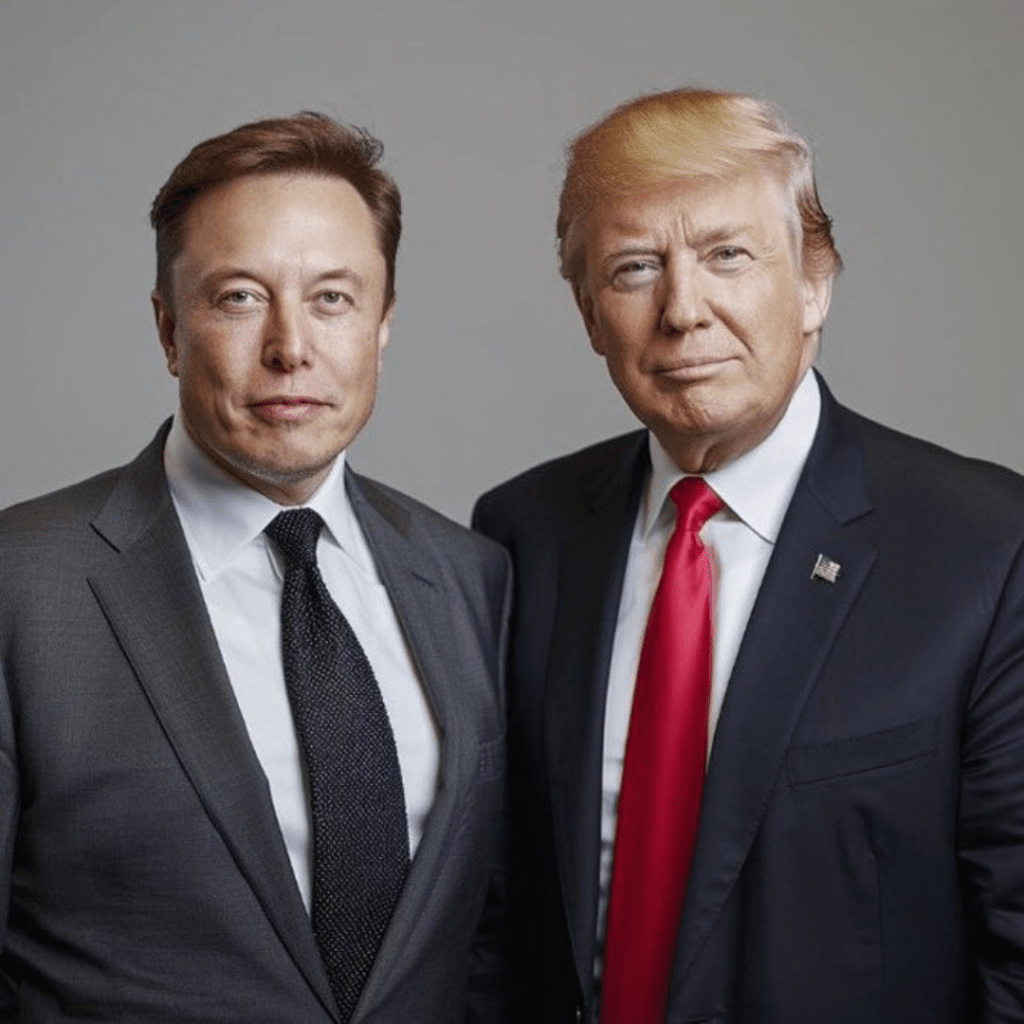The headline-grabbing fight between Trump and Musk has taken a turn. Elon Musk apologized and admitted he went too far, and now industry leaders, especially in e‑commerce, must shift their playbook.
Let’s see how this Trump and Musk rivalry wrapping up affects the US economy, ecommerce companies, and what ecommerce business owners need to ask and act on now.
The Feud That Shook Markets and Then Fizzled Out
It started with sharp words. Elon Musk publicly criticized Donald Trump’s fiscal policies, calling them “short-sighted and unsustainable.” Trump clapped back, threatening to pull billions in government contracts from Musk’s companies.
Suddenly, it wasn’t just a war of words but a clash of titans. The fight between Trump and Musk snowballed fast. From SpaceX to Starlink to Tesla, ripple effects hit markets, investors, and even small business owners wondering, “What next?”
What Just Happened?
Elon Musk issued a public apology, saying, “I regret some of my posts about President” and admitting he overstepped.

Musk even posted a single red heart emoji under Trump’s message expressing goodwill. This shift signals that the Donald Trump and Elon Musk feud might be cooling.
Behind the Apology: What It Really Means
Was Musk’s apology strategic or sincere? That’s debatable. But what’s clear is this:
- Tesla stock began recovering from a 15% dip
- Ecommerce leaders like us breathed a little easier
- Analysts eased off predictions of broken federal ties
It wasn’t just a spat but a lesson in how quickly influential voices can shake real-world business.
Why This Truce Still Matters
Market Instability Isn’t Gone Overnight
The initial conflict triggered a 15% drop in Tesla’s share price, wiping out an estimated $150 billion in value. While the stock has bounced back, that volatility sent shockwaves to suppliers, investors, and tech markets.

Contracts Remain Tenuous
Trump’s threats to cancel nearly $48 billion contracts haven’t disappeared. Musk’s apology may ease tensions, but the risk isn’t gone.
E‑commerce Felt the Ripple
Economic uncertainty from the feud led to the following:
- Consumer hesitation on discretionary spending.
- Rising shipping and sourcing costs amid the threat of renewed tariffs.
- Fluctuating digital ad spend, some big players pausing before Musk’s olive branch.
How the Feud Affected Ecommerce Companies in the Real World
- Supply Chain Worries
The threat of new tariffs and trade restrictions created panic, especially among businesses sourcing from China, India, and Mexico. Import costs were projected to rise by 5–8%, impacting ecommerce companies across fashion, tech, and consumer goods.
- Slower Consumer Confidence
Stock market shakiness led to uncertainty in spending. Luxury and impulse categories, key ecommerce drivers, saw temporary traffic and conversion slowdowns.
- Disrupted Ad Ecosystem
With Musk controlling X and Trump threatening ad reforms, brands hesitated. Meta and Google ad strategies shifted. Many SMBs pivoted toward SEO and email—a smart move, honestly.
What Ecommerce Leaders Should Do Next
Reevaluate Supply Chains
Even with the feud cooling, don’t rely on fragile logistics. Diversify sourcing, explore regional production, and keep shipping routes flexible.
Upgrade Marketing Strategy
If big advertisers tighten budgets again:
- Lean into SEO, email, and organic strategies.
- Use comprehensive ecommerce marketing services that pivot quickly.
Build Resiliency into Tech
Invest in scalable platforms, agile infrastructure, and flexible e‑commerce solutions that adapt to shifting market conditions.
Maintain Credibility
Your influence grows consistently and reliably as a brand, especially when high-profile drama fades but policy shifts remain.
Invest in Reliable Ecommerce Solutions
Whether cart optimization, speed improvements, or API integrations, this is the time to strengthen your online store. At Webiators, we’ve helped clients scale fast using our custom ecommerce marketing services and tools that evolve with market changes.
What This Feud Teaches Us About Consumer Trust in the US Market
Americans buy with their values. One week, they’re boycotting Elon. Next, they’re cheering for him again. The lesson? If you run an online store, don’t chase headlines; build relationships. Use content marketing, personalized outreach, and value-driven messaging. Avoid getting caught up in the political drama. Build trust that lasts beyond news cycles.
Will International Ecommerce Be Affected Too?
Yes, but more subtly. Countries like India, Vietnam, and Bangladesh that manufacture for American retailers depend on stable US trade policies. If Trump returns to power in 2025, expect new tariffs, stricter regulations, and “America First” incentives. Ecommerce brands should:
- Prepare for currency fluctuation
- Evaluate alternative fulfillment hubs (e.g. Latin America)
- Localize experiences for non-US buyers in case of trade shifts
Small Business Takeaway: Reputation Moves Markets
As the owner of Webiators Technologies, I work closely with US businesses to build robust ecommerce platforms. The biggest lesson this feud taught us? Perception is profit.
In today’s digital-first world, a single tweet can disrupt supply chains. A feud between two billionaires? That can send small businesses scrambling to reassess logistics, advertising, and product pricing, so while the feud may be cooling, its impact is.
Closing Thoughts
We live in a time when billionaire arguments can shake your Google Analytics. This Trump and Musk news may fade, but the pressure it created on businesses was real. For ecommerce companies, this is a moment to pivot, not pause. Reassess what you can control: supply chains, tech, marketing, and brand trust.
We need to prepare for unpredictability and turn it into opportunity. At Webiators Technologies, we don’t just build stores. We build ecommerce ecosystems that are smart, scalable, and ready for whatever comes next. We help businesses create resilient e‑commerce solutions that thrive in uncertainty.
Ready to make your next move? Let’s connect.
FAQs
Ans: It signals reduced volatility, but many uncertainties still linger in supply and policy.
Ans: Diversify, go agile, and strengthen owned marketing channels; these defensive moves prepare you for either path.
Ans: It led to fears of disrupted logistics, price hikes, and shifts in ad spending, especially for businesses reliant on imported goods and digital platforms.
Ans: Yes. Political dynamics can still change policies, tariffs, and regulations. The apology may end the drama, but not the uncertainty.
Ans: Focus on strong marketing, solid infrastructure, and flexible logistics. Partner with agencies like Webiators Technologies that offer scalable e-commerce solutions rather than just pretty websites.
Sources:
- https://nypost.com/2025/06/10/us-news/elon-musk-hints-at-detente-with-trump-after-prez-wishes-him-well/
- https://www.theguardian.com/business/live/2025/jun/11/us-china-trade-war-rare-earths-inflation-stock-markets-business-live-news-updates
- https://www.telegraph.co.uk/world-news/2025/06/11/elon-musk-apologises-some-x-posts-donald-trump-row/
- https://nymag.com/intelligencer/article/why-did-elon-musk-turn-against-trump-in-the-first-place.html


